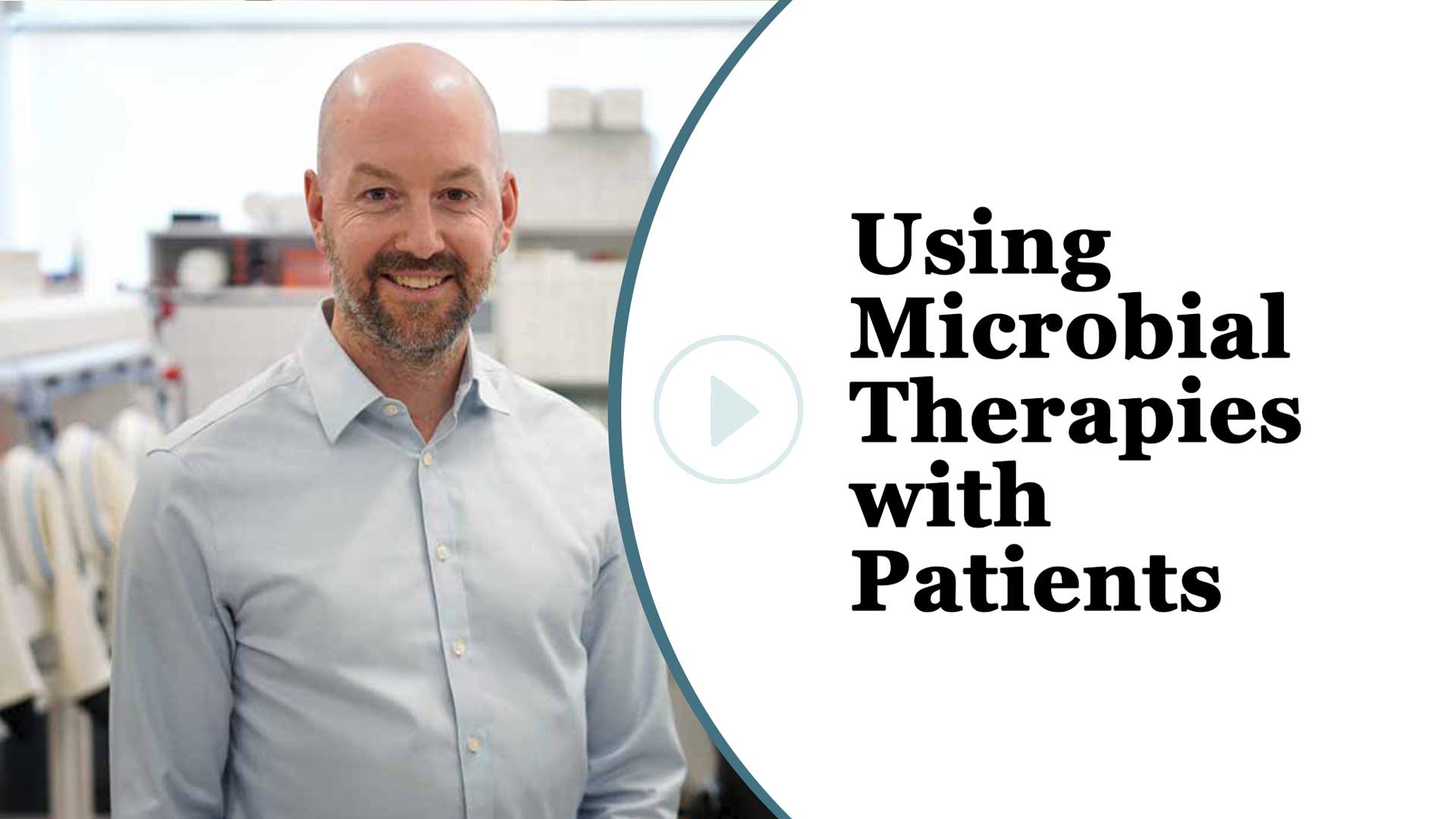How Microbiome-based Therapies Can Help Your Patients
An Overview
A healthy gut has a diverse range of microbes that help us digest the food we eat, produce special nutrients, and regulate our mood and immune system. Think of a healthy microbiome like a rain forest bursting with thousands of plant species, birds, and mammals, where they all play critical roles in maintaining a healthy, diverse and stable ecosystem. But modern diets, lifestyles, and other factors are slowly destroying this delicate ecosystem in our gut. This loss of microbial diversity and function is associated with a growing list of chronic health issues.
Disruptions to our gut microbiome called dysbiosis is linked to a range of chronic diseases.

WATCH BiomeBank’s Chief Medical Officer Dr Samuel Costello talk about his experiences of using Microbial Therapies with patients.
Results Backed
by Science
Microbiome-based therapies have demonstrated that restoring a patient’s gut microbial ecology can effectively treat certain infectious and chronic diseases. This has traditionally been done by Faecal Microbial Transplantation (FMT) which involves transplanting the microbial community found in the gut of a healthy donor into a patient with chronic disease.
Current Treatments
Clinical studies have repeatedly demonstrated that Faecal Microbial Transplantation (FMT) can effectively treat recurrent clostridioides difficile infection, a condition which causes severe diarrhoea and is becoming more common due to the widespread use of antibiotics.
This method of treatment has been shown to prevent recurrent infection in 81% – 96% of patients with minimal side effects. It has been shown to be superior to treatment of the infection with antibiotics alone, the current standard of care.
Current Treatment (Antibiotics) vs Faecal Microbial Transplantation (FMT)
Current Treatment
FMT
Microbiome-based therapies are currently being studied as a treatment for other inflammatory diseases such as ulcerative colitis. In a randomised clinical trial published in JAMA, BiomeBank’s Chief Medical Officer Dr Samuel Costello and team demonstrated that FMT can induce clinical remission in patients with mild to moderate Ulcerative Colitis. A recent study in Lancet further demonstrated the role of microbiome-based therapies in treating ulcerative colitis (Haifer et al. 2022 Lancet).
Remission Rates for Placebo vs Orally delivered encapsulated FMT for Patients with Ulcerative Colitis
Placebo
Orally delivered FMT
Second Generation Treatments
BiomeBank is developing second generation microbiome-based therapies that replicate the bacterial complexity seen in faecal microbiome transplant while also containing target bacterial strains which carry important function for treating disease. This next generation microbiome-based therapy will be manufactured in bioreactors, freeze-dried, and encapsulated for global distribution. This will recreate and improve upon the efficacy seen in donor microbiome-based therapies, while creating a more consistent product that is not reliant on donor material.
Our Treatments
Got questions about us or our products?
Get in touch with our team
- (+61) 08 7223 0075
- orders@biomebank.com
Go Further
Get a better understanding of your microbiome with our long read articles.


